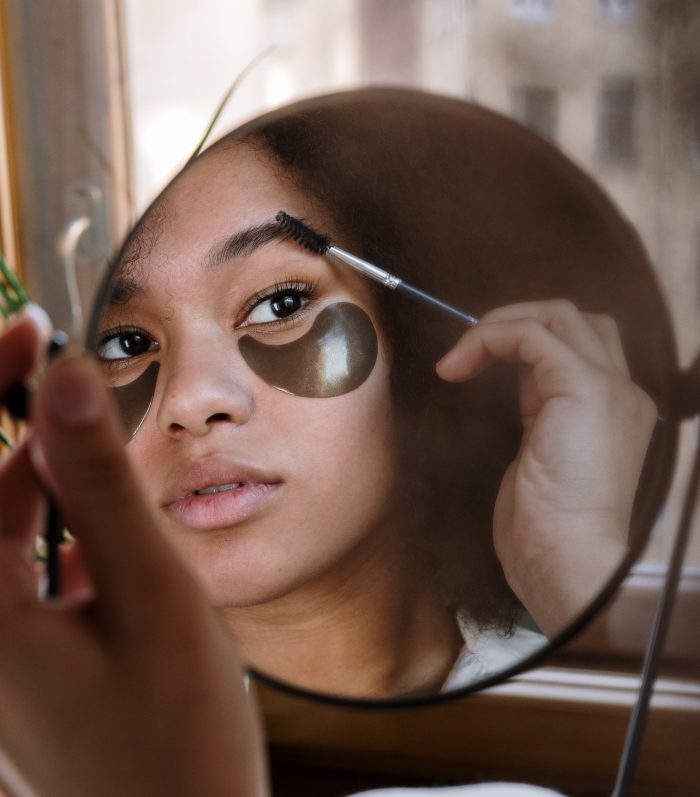Never take your eyes for granted.
Have you ever thought of what to do if your eyesight decreases, or if you become blind? The eye is one of the most essential parts of the body. Without eyes, we cannot imagine our colorful world. If you close your eyes, the world turns dark.
Every year, the 2nd Thursday of October is celebrated as World Sight Day.
On October 8, 2019, The World Health Organization (WHO) released its first world report on vision, saying that at least one billion people in the world suffer from vision problems. One billion people would not have had this problem if they had received timely treatment. Those who have diabetes, glaucoma, or people in their fifties have this problem, but the main reason is not taking care of the eyes.
Short-sightedness can have dangerous and long-lasting effects on all aspects of life, including daily personal activities, school, work opportunities, and the ability to access public services. The majority of people with vision impairment are over the age of 50 years; however, people of all ages can be affected by short-sightedness.
In this article, I’ll share with you the opinion of world-renowned eye specialists to keep your eye health good. If you follow their advice, you will surely have healthy, beautiful eyes.
1. Eat good food
There is a saying that you are what you eat. So, if we want to keep our body fit and our eyes in good health, we need to have a healthy and balanced diet.
The Age-Related Eye Disease Study (AREDS) published their updated study in 2013. They found that certain nutrients: omega-3, fatty acids, zeaxanthin, lutein, and beta carotene, zinc, copper, vitamin C, vitamin E—all reduce the risk of age-related decline in eye health. American Optometric Association (AOA) and the American Academy of Ophthalmology (AAO) continue to recommend nutrients for eye health based on the AREDS reports.
The AREDS reports support the following 10 nutrient-rich foods:
>> Fish: Tuna, Salmon, Trout, Mackerel, Sardines, Herring, and anchovies are rich sources of omega-3 fatty acids. Some studies have found that fish oil brings the dry eye back to normal, and can protect eyes turning dry caused by spending too much time on the computer.
>> Nuts and Lentils: Brazil nuts, walnuts, cashews, and peanuts contain vitamin E and omega-3 fatty acids, which can protect the eye from age-related damage.
>> Seeds: Seeds are also high in omega-3s and are a rich source of vitamin E. Seeds in high omega-3 include flax seeds, hemp seeds, and chia seeds.
>> Citrus fruits: Citrus fruits are rich in vitamin C. Vitamin C is recommended by the AOA to fight against age-related eye damage. Grapefruits, Oranges, and Lemons are rich in vitamin C.
>> Green Vegetables: Leafy green vegetables have both Lutein and Zeaxanthin and are also a good source of vitamin C. Leafy greens include: Kale, Collards, and Spinach.
>> Carrots: Carrots are rich in beta carotene and Vitamin A. The color of carrots is orange due to beta carotene. Vitamin A plays a vital role in vision.
>> Sweet Potatoes: Sweet potatoes are rich in beta carotene. Both are also a good source of vitamin E.
>> Beef: Beef is rich in zinc, which is good for long-term eye health. Zinc will help you delay age-related sight loss and macular degeneration.
>> Eggs: Eggs are good sources of Zinc, Vitamin C, and E. Eggs are also a source of Lutein and Zeaxanthin, which reduce the risk of age-related sight loss.
>>Water: Drinking plenty of water can prevent dehydration. It may prevent dry eyes.
2. Quit smoking
We all know that smoking is harmful to our health, but we continue to smoke. Smoking increases the chances of cataracts, damages your optic nerve, and causes macular degeneration, among many other complications in the body. Quit smoking not only to keep your lungs feeling good but also to keep your eyes healthy and clear.
3. Wear Sunglasses
Sunglasses will help protect your eyes from ultraviolet (UV) rays. Excessive UV rays increase the chances of cataracts and macular degeneration. Two basic types of ultraviolet rays reach the earth’s surface—UVB and UVA.
Choose a pair of sunglasses that block 99 to 100 percent of both (UVA and UVB) rays. Wraparound lenses protect your eyes from the side. Polarized lenses help to reduce glare while you drive. Some contact lenses offer UV protection. It’s a good idea to wear sunglasses for an extra layer.
4. Use Safety Eyewear
Wear safety glasses or protective goggles if you have hazardous or airborne materials on the job or at home.
5. Look Away From the Computer Screen
Staring at a computer or phone screen for too long can cause blurry vision, eyestrain, dry eyes, trouble focusing at a distance, headaches, neck, back, and shoulder pain. Choose a comfortable, supportive chair. Place it in such a way that your feet are flat on the floor. You can use blue light blocking glasses to protect your eyesight from blue light.
Use artificial tears. If your eyes are dry, blink more. Rest your eyes every 30 minutes. Look 20 feet away for 30 seconds. Get up at least every two hours and take a 15-minute break. Moving your body will help you ease the fatigue. Walking, yoga, and other exercises also bring freshness to the mind.
6.Visit Your Eye Doctor Regularly
Everyone should have a regular eye exam, even young children. Glaucoma has no symptoms, but you can find the disease through eye exams. It’s urgent to identify the problems when they’re easier to treat.
Depending on your eye health needs, you can see one of two types of doctors: Ophthalmologists, who are specialized in eye care. They can provide general eye care and treat eye diseases. They also perform eye surgery. Or Optometrists, they need four years of specialized training after college. They can diagnose and treat most eye diseases and provide general eye care. However, they don’t perform eye surgery.












Read 2 comments and reply